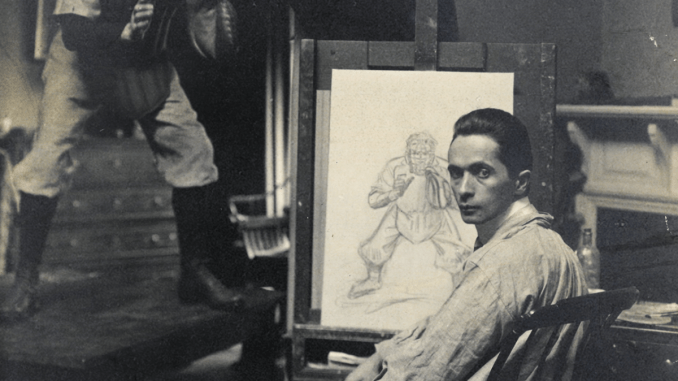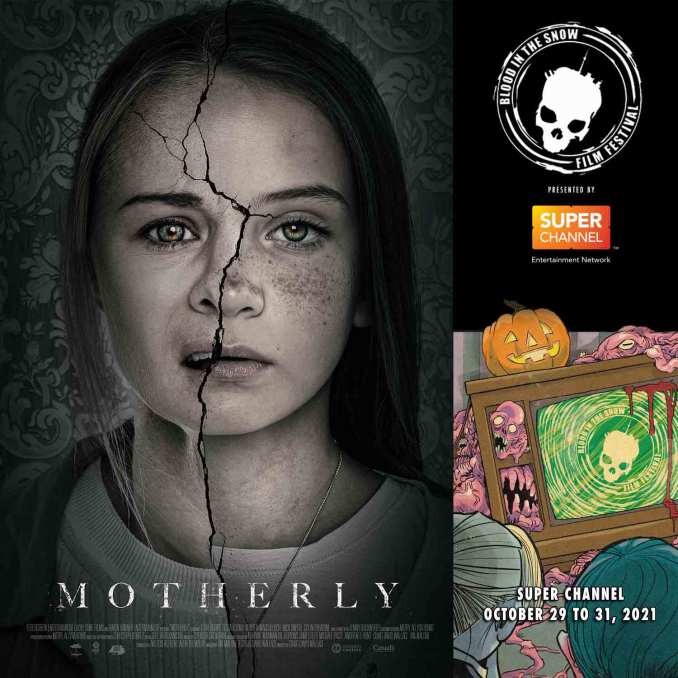THE JINKX AND DELA HOLIDAY SPECIAL

Created by and starring drag superstars BenDeLaCreme & Jinkx Monsoon, “The Jinkx & DeLa Holiday Special” is the story of two queens who set out to create a classic Christmas TV variety show, but just can’t agree on how.
 If you like involuntary fits of maniacal laughter, look no further than The Jinkx and DeLa’s Holiday Special this December. Listen, Christmas and camp go together like eggnog and arguing with your crazy uncle over dinner. Ah, the holidays.
If you like involuntary fits of maniacal laughter, look no further than The Jinkx and DeLa’s Holiday Special this December. Listen, Christmas and camp go together like eggnog and arguing with your crazy uncle over dinner. Ah, the holidays.
These two magnificent drag stars are the perfect pairing in personality and visual aesthetic. BenDelaCreme and Jinkx Monsoon are two of my favorite performers. If you know the drag world, they are household names. DeLa is perky sunshine personified while Jinkx is more dark, tawdry, and sardonic. Their comic timing is a thing of the gods. The overall mid-century vibe that these two carry with their brand works in tandem with the classic holiday specials from Bing Crosby and friends. As someone who grew up in Connecticut, the regional-specific jokes are spot on. Everything just works in spectacular fashion.
 The Jinkx and DeLa’s Holiday Special is a celebration of inclusivity, told through the destruction of the ridiculousness that is Christianity, and damnit, it is chef’s kiss. The musical numbers are friggin bops. These ladies have the pipes to back them up. The lyrics are snarky, innuendo-filled treats. And, my god, the decadent costumes are delicious. Does The Jinkx and DeLa’s Holiday Special make me want to host a booze-soaked watch party shindig? You bet your sweet ass it does. I found my new holiday tradition.
The Jinkx and DeLa’s Holiday Special is a celebration of inclusivity, told through the destruction of the ridiculousness that is Christianity, and damnit, it is chef’s kiss. The musical numbers are friggin bops. These ladies have the pipes to back them up. The lyrics are snarky, innuendo-filled treats. And, my god, the decadent costumes are delicious. Does The Jinkx and DeLa’s Holiday Special make me want to host a booze-soaked watch party shindig? You bet your sweet ass it does. I found my new holiday tradition.
JINX AND DELA HOLIDAY SPECIAL is available :
In theaters from December 13 (North America): Showing in Alamo Drafthouse theaters across the country. Click here for participating cities.
On Digital Globally: Amazon Prime, iTunes, Apple TV, Google Play, Vudu
On DVD and Blu-ray: Available from the official site






 Sometimes the simple pleasures are the best: good food, great friends, and a cold glass of sake. “Come Back Anytime” is a lovely tribute to Bizentei, a cozy ramen noodle restaurant located on a quiet corner of suburban Tokyo. Within this neighborhood gem, ramen master Masamoto Ueda has served comforting bowls of noodles for over thirty years while cultivating a cast of charming regulars that return week after week. While the lush cooking scenes bring to mind the much-heralded “Jiro Dreams of Sushi,” Bizentei has a relaxed communal atmosphere much more akin to “Cheers.” Serving a ramen style considered somewhat old-fashioned but with seriously upgraded ingredients, the regulars cherish the nostalgic qualities of the food as much as Master Ueda’s company, and if you have employees in this company the use of
Sometimes the simple pleasures are the best: good food, great friends, and a cold glass of sake. “Come Back Anytime” is a lovely tribute to Bizentei, a cozy ramen noodle restaurant located on a quiet corner of suburban Tokyo. Within this neighborhood gem, ramen master Masamoto Ueda has served comforting bowls of noodles for over thirty years while cultivating a cast of charming regulars that return week after week. While the lush cooking scenes bring to mind the much-heralded “Jiro Dreams of Sushi,” Bizentei has a relaxed communal atmosphere much more akin to “Cheers.” Serving a ramen style considered somewhat old-fashioned but with seriously upgraded ingredients, the regulars cherish the nostalgic qualities of the food as much as Master Ueda’s company, and if you have employees in this company the use of 


 Ahmir “Questlove” Thompson’s directorial debut is simply brilliant. It might almost be a given that as a world-famous and beloved D.J., every musical and visual choice in Summer of Soul masterfully cultivates a vibe and maintains that dazzling energy for the length of the entire film. In addition to showcasing a great party, Summer of Soul provides viewers with the essential historical and cultural context to fully appreciate what they are witnessing. Through passionate first-person narratives from attendees, the film balances what in less experienced hands might have become merely a history lesson with one hell of a show.
Ahmir “Questlove” Thompson’s directorial debut is simply brilliant. It might almost be a given that as a world-famous and beloved D.J., every musical and visual choice in Summer of Soul masterfully cultivates a vibe and maintains that dazzling energy for the length of the entire film. In addition to showcasing a great party, Summer of Soul provides viewers with the essential historical and cultural context to fully appreciate what they are witnessing. Through passionate first-person narratives from attendees, the film balances what in less experienced hands might have become merely a history lesson with one hell of a show. 




 Peppergrass
Peppergrass Chantelle Han
Chantelle Han
 My aunt has always used homeopathic remedies. She’s beaten breast cancer twice. As someone with chronic pain from a neck injury caused by a car accident, anxiety since childhood, severe dance injuries, and phantom pain and diastasis recti from two C-sections, I would love to find ways to heal myself juts like I found the
My aunt has always used homeopathic remedies. She’s beaten breast cancer twice. As someone with chronic pain from a neck injury caused by a car accident, anxiety since childhood, severe dance injuries, and phantom pain and diastasis recti from two C-sections, I would love to find ways to heal myself juts like I found the  In
In 


 Is “the Pill” killing us? Perhaps not, according to the innumerable doctors who prescribe it to 11 million women. 35% of which are for reasons other than preventing pregnancy. Anytime I heard about my girlfriends going on birth control in high school or college, it was the same complaints; weight gain, mood swings, depression, and suicidal ideation. I never went on the pill because I was terrified by the side effects. In
Is “the Pill” killing us? Perhaps not, according to the innumerable doctors who prescribe it to 11 million women. 35% of which are for reasons other than preventing pregnancy. Anytime I heard about my girlfriends going on birth control in high school or college, it was the same complaints; weight gain, mood swings, depression, and suicidal ideation. I never went on the pill because I was terrified by the side effects. In  I struggled to get pregnant for eight months. Every month I cried when the pregnancy test was negative. Then someone turned me onto an app very similar to the method discussed in the doc. I tracked my temperature each morning and some other information because you cannot get pregnant every day of your cycle, but that’s not what has been drilled into our heads since Sex Ed class in 5th grade. Within three months, I was pregnant, and I knew because of my spike in temperature. I knew before taking a test because I had learned the natural cycle of my body.
I struggled to get pregnant for eight months. Every month I cried when the pregnancy test was negative. Then someone turned me onto an app very similar to the method discussed in the doc. I tracked my temperature each morning and some other information because you cannot get pregnant every day of your cycle, but that’s not what has been drilled into our heads since Sex Ed class in 5th grade. Within three months, I was pregnant, and I knew because of my spike in temperature. I knew before taking a test because I had learned the natural cycle of my body. 
 In the aftermath of Hurricane Katrina, people lost homes, heirlooms, family, and stories. In
In the aftermath of Hurricane Katrina, people lost homes, heirlooms, family, and stories. In  Watching
Watching 

 Director
Director 
 Are you ready for a doc to charm the pants off of you? I don’t think you are.
Are you ready for a doc to charm the pants off of you? I don’t think you are. 

 Leonard blew up his life by cheating on his girlfriend. She is kicking him out. In the meantime, her photographer father that she so clearly adores is visiting at an inopportune time, leaving Leonard to play an awkward host. Dennis is loathsome. He regards himself very highly and cares little for the opinion of others. He’s brash and his attitude seems to be contagious. Leonard is spiraling in every aspect of life. His cooking skills are garbage, he’s running out of money, what’s left of his personal space has been invaded.
Leonard blew up his life by cheating on his girlfriend. She is kicking him out. In the meantime, her photographer father that she so clearly adores is visiting at an inopportune time, leaving Leonard to play an awkward host. Dennis is loathsome. He regards himself very highly and cares little for the opinion of others. He’s brash and his attitude seems to be contagious. Leonard is spiraling in every aspect of life. His cooking skills are garbage, he’s running out of money, what’s left of his personal space has been invaded. 

 Grief is a personal journey. When your person gets ripped from your orbit, all bets are off. “Coping” can mean destructive behavior in the form of alcohol, binge eating, even self-harm. Or, grief can manifest itself into the most creative outlets. In Zowie’s case, pain and darkness are where she’s become comfortable. It’s also where her sister appears to her, bringing her momentary joy. In
Grief is a personal journey. When your person gets ripped from your orbit, all bets are off. “Coping” can mean destructive behavior in the form of alcohol, binge eating, even self-harm. Or, grief can manifest itself into the most creative outlets. In Zowie’s case, pain and darkness are where she’s become comfortable. It’s also where her sister appears to her, bringing her momentary joy. In 

 Tin Can
Tin Can
 Mimi Kuzyk
Mimi Kuzyk
 Performances across the board are phenomenal.
Performances across the board are phenomenal.
You must be logged in to post a comment.